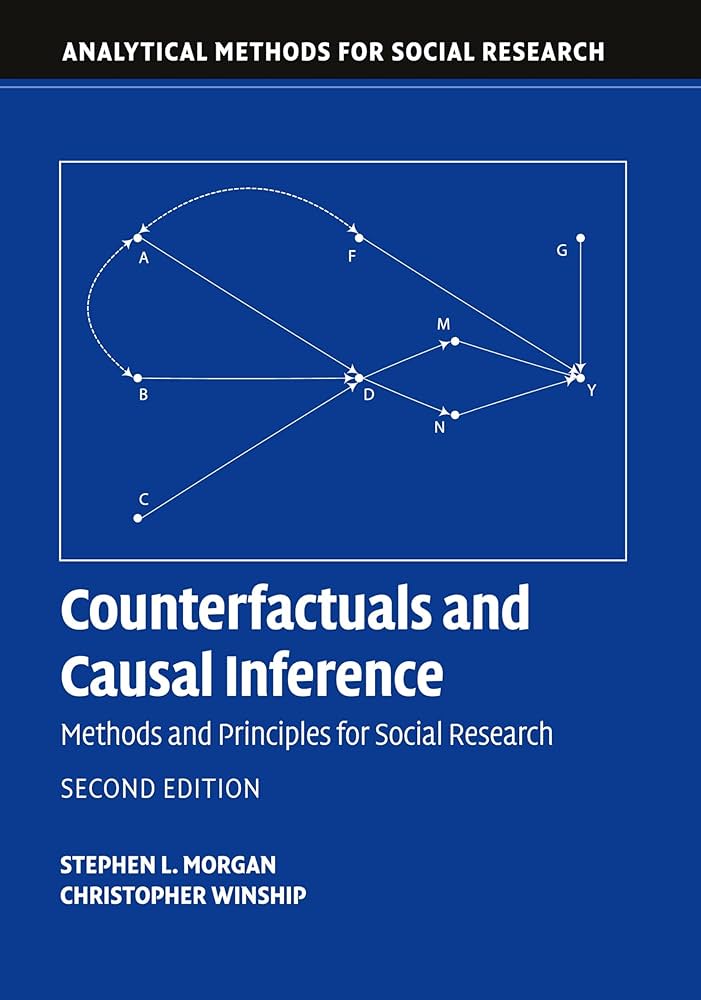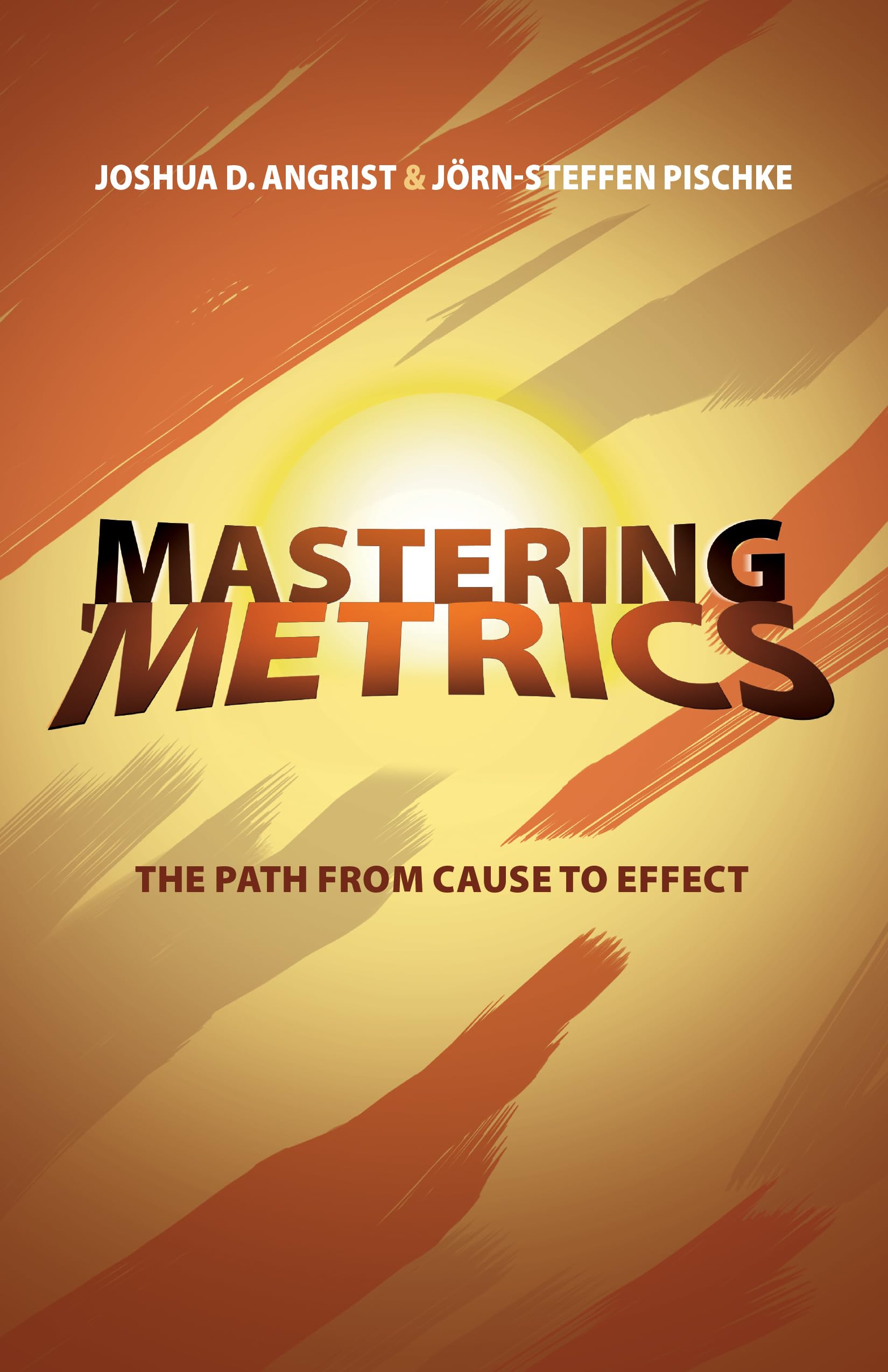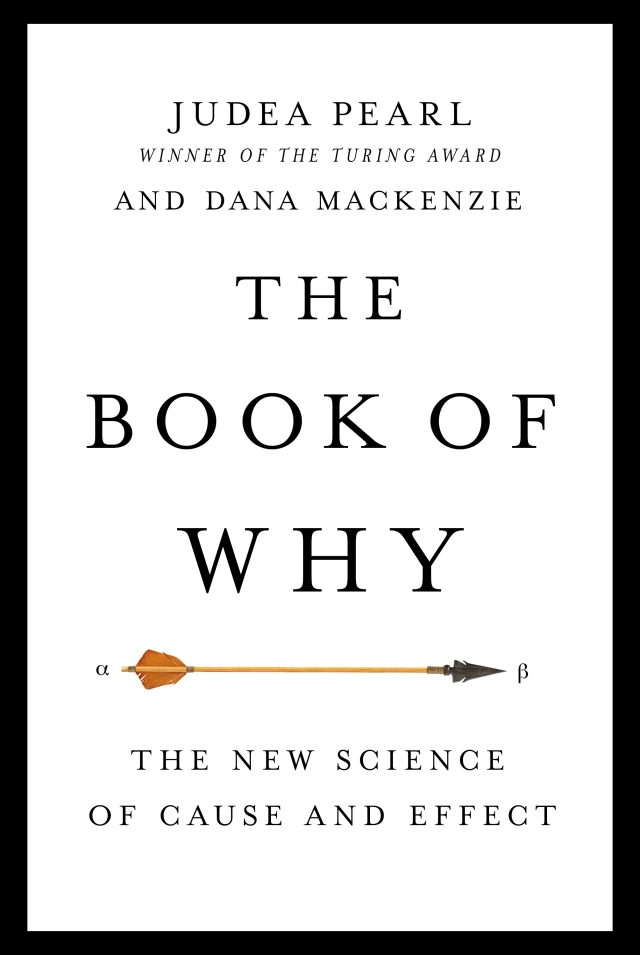Resources
| What Jeff calls it | Citation (hover and/or click for PDF link) |
|---|---|
| “Statistical Rethinking” | McElreath (2020) |
| “The Multilevel book” | Gelman and Hill (2007) |
| “The Koller PGM book” | Koller and Friedman (2009) |
| “The non-technical Pearl book” | Pearl and Mackenzie (2018) |
| “The technical Pearl book” (containing, e.g., axioms and proofs) | Pearl (2000) |
| “The French Revolution paper” | Barron et al. (2018) |
Core Textbooks
As mentioned on the syllabus, the field of causal inference in general (and causal inference for computational social science in particular) moves excitingly-fast, such that the material has yet to “congeal” into a single, all-encompassing textbook. Nonetheless, the following three books cover a substantial amount of ground (described in more detail below each citation), so that together they form a coherent “three-volume textbook” for this class! If you can only read three books this summer, read these :)
Topic-Specific Textbooks
Probabilistic Graphical Models
Koller and Friedman (2009), Probabilistic Graphical Models: Principles and Techniques
Chapter 2, with an overview of probability theory and graph theory, is included in the Syllabus as the recommended reading for Week 2! Then, Chapter 3 will give you the core concepts of Bayes Nets specifically, while Chapter 6 will add in a few of the useful additional tools we use, like plate notation.
Bayesian Data Analysis
McElreath (2020), Statistical Rethinking
This is… possibly the book I draw on the most for the in-class and homework examples, because in my opinion it has the perfect pedagogical mixture of interesting social-scientific examples and theoretical motivations for how we can analyze those interesting examples via Bayesian modeling! So, meaning, if I introduce an example from this book, and you find yourself struggling with the logic behind it, you can go to the relevant section and read from the start of the chapter to see how McElreath “builds up to” it!
Lee and Wagenmakers (2013), Bayesian Cognitive Modeling: A Practical Course
I wasn’t sure whether to place this in the “topic-specific” or “reference texts” section here, because, it serves both purposes! The split between different chapters has a super helpful logic:
- The earlier chapters walk you step-by-step through how you can “build up” from simpler to more complex Bayesian models of things like differences-in-means, two-sided vs. one-sided hypotheses, and so on, and then
- The chapter near the middle discusses how to use e.g. Bayes Factor and log-likelihood methods to compare the different models introduced in the earlier chapters, and then finally
- The chapters at the end apply all of the above, by taking a series of prominent research topics in Cognitive Science and showing how to effectively model them via PGMs and Bayesian inference.
Gelman et al. (2013), Bayesian Data Analysis
Multilevel Modeling
Gelman and Hill (2007), Data Analysis Using Regression and Multilevel/Hierarchical Models
Reference Texts
In contrast to the books in the “Core Textbooks” section, these books are not “the” textbooks for the class! These are here instead as reference books, to keep on hand (a) for when the lectures or the above books are unclear on some topic, and/or (b) for deeper dives into certain topics (where the latter may become a more relevant mission for you as we move towards the final project 😉)
Causality
Pearl (2000), Causality: Models, Reasoning, and Inference
As mentioned during Week 2, this is the book containing the fully-developed “unified theory” of causality, starting from a set of axioms and deriving the possibilities of causal inference as formal theorems.
Within “pure” mathematics, if you kept digging into the foundations of things like calculus or algebra, you would eventually arrive at Alfred North Whitehead and Bertrand Russell’s Principia Mathematica—Pearl (2000) is that but for causality: the foundational axioms and core theorems are all in here.
Hume (1748), An Enquiry Concerning Human Understanding
This book serves as the philosophical “jumping off point” for causality: you can think of it like, there’s a nice progress-narrative of the human study of causality, that starts with the uncomfortable questions raised in Hume (1748) about the possibility (or impossibility!) of inferring knowledge of causality via inductive reasoning, and culminates in Pearl (2000).
Applied Examples
The Holy Grail (But, Field = Comparative Politics)
Kalyvas (2006), The Logic of Violence in Civil War
This book is essentially… like, when you read stories about people spending decades hand-carving pathways through a mountain using only a hammer and chisel, this is the social science equivalent of that. A painstaking labor-of-love book that checks every single box I can think of in terms of causally-focused computational social science. It’s my model for any research I try to carry out.
History
Barron et al. (2018), “Individuals, Institutions, and Innovation in the Debates of the French Revolution”
Blaydes, Grimmer, and McQueen (2018), “Mirrors for Princes and Sultans: Advice on the Art of Governance in the Medieval Christian and Islamic Worlds”
Econometric Policy Evaluation
Björkegren, Blumenstock, and Knight (2025), “What Do Policies Value?”, Review of Economic Studies [PDF]
Another “holy grail” paper, but in this case more for the Data Ethics and Policy course than this course. However, it does touch substantially on the issue of associational vs. causal inference, especially in terms of how going towards causality is a “high stakes” endeavor here, since we’re inferring normative ethical values from data (as opposed to descriptive statistics like the magnitude of the causal effect \(X \rightarrow Y\))
Video Resources
To me (as in, given how my brain works), there are certain topics which I’ve spent hours trying to understand via reading, only to realize that there’s some simple diagram or animation out there which “clicks” it in my mind 10000 times more effectively than the reading ever would.
So, to that end, these video resources are just as important as (for some topics far more important than) the resources above!1
Ahrens (2024), “Robust Causal Inference using Double/Debiased Machine Learning: A Guide for Empirical Research”, MZES Methods Bites Seminar Link
Here I literally added it to the resources folder before I realized that it has a discussion of a paper I did during the PhD. So, perhaps leaving it in here is some sort of humble brag, but finding it originally was not! (It’s what came up for me when I searched “Double/Debiased Machine Learning” on YouTube in May 2025 😜)
Miscellaneous / Commonly-Used Books That We’re Not Really Using
King, Keohane, and Verba (1994), Designing Social Inquiry
I don’t really have a substantive critique of this book, or a deep reason for not using it, other than that I find myself getting really bored whenever I try to read it 🙈
References
Footnotes
For similar reasons, audiobooks may provide more effective ways to digest some topics in the course!↩︎


